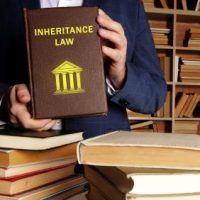Category Archives: Estate Planning

Inheriting a 401(k) Account, What To Expect
If you have a 401(k) account, count your blessings. Homeownership is the most visible sign of financial stability, but 401(k) accounts count for a lot, too. A 401(k) account is an employer-provided retirement account; many employers match the employee’s contributions to the account up to a certain amount per year. Therefore, you can accumulate… Read More »

A Simple Estate Is Not the Ticket to Simplicity That You Think It Is
While almost everyone else makes themselves miserable trying to get rich, you have figured out a more certain path to happiness. Specifically, you have embraced the simple life, where you are content with your modest possessions, and you spend your efforts appreciating the things that money cannot buy. You might think that, by embracing… Read More »

3 Things That People Underestimate About Their Estate Plans
The biggest misconception about estate plans is that only rich people and those estranged from crazy, vindictive relatives need them. Estate planning is not just about writing a will and people fighting about it during probate. It is also not just about establishing a trust so that your spoiled children can continue living like… Read More »

The Afterlife of a Family Farm
Egomaniacs brag about the property that their heirs will inherit from them, and the biggest jerks boast about how clever they are in withholding money from people they don’t like, such as their ex or Medicaid beneficiaries, through crafty estate planning. Truly generous people think about the ways that the property they leave to… Read More »

What Does Divorce Monday Have to Do With Your Estate Plan?
Perhaps you have heard the news that the first business Monday of the year is Divorce Monday, the day when more people file divorce petitions and contact divorce lawyers than any other day of the year. What does that have to do with you? You and your spouse have been together for decades, through… Read More »

Beware of the Financial Risks of Solo Aging
America’s loneliness epidemic is nothing new. The book Bowling Alone came out decades ago, and why television sets in every room, with different family members watching different shows, worlds apart in the same house, have not given way to virtual reality helmets, as the author Robert Putnam had predicted, the ubiquity of smartphones each… Read More »

Only Set Up a Trust If It Will Simplify Your Estate Plan
The best reasons to establish a trust are if you are rich or if your house is the only thing stopping you from being poor. If you own millions of dollars’ worth of property, your estate will be subject to estate tax during probate, pursuant to New York law. Another reason that people establish… Read More »

Proving for Your Unmarried Domestic Partner in Your Estate Plan
People who get up early every Saturday morning and start doing housework, who file their income taxes in the first week of February, in short, people who never procrastinate still regard estate planning with trepidation. No one wants to think about how much or how little their relatives will miss them after the thinker… Read More »

Trimming Unnecessary Expenses for an Affordable Retirement
Personal finance advice tends to be directed at people younger than you. It gestures toward a goal of having money left over at the end of each pay period, so that you can save it for the future, and eventually afford to retire. Most of it is aspirational; the financial freedom it inspires you… Read More »

Beware of Strawman Beneficiaries of Your Estate Plan
Everyone has that one relative who loves to give holiday gifts, but every time you receive a gift from her, you realize how little she knows you, how little attention she has paid to anything you have ever said in her presence. Perhaps it is an elderly aunt or a step-grandmother. She gives you… Read More »
